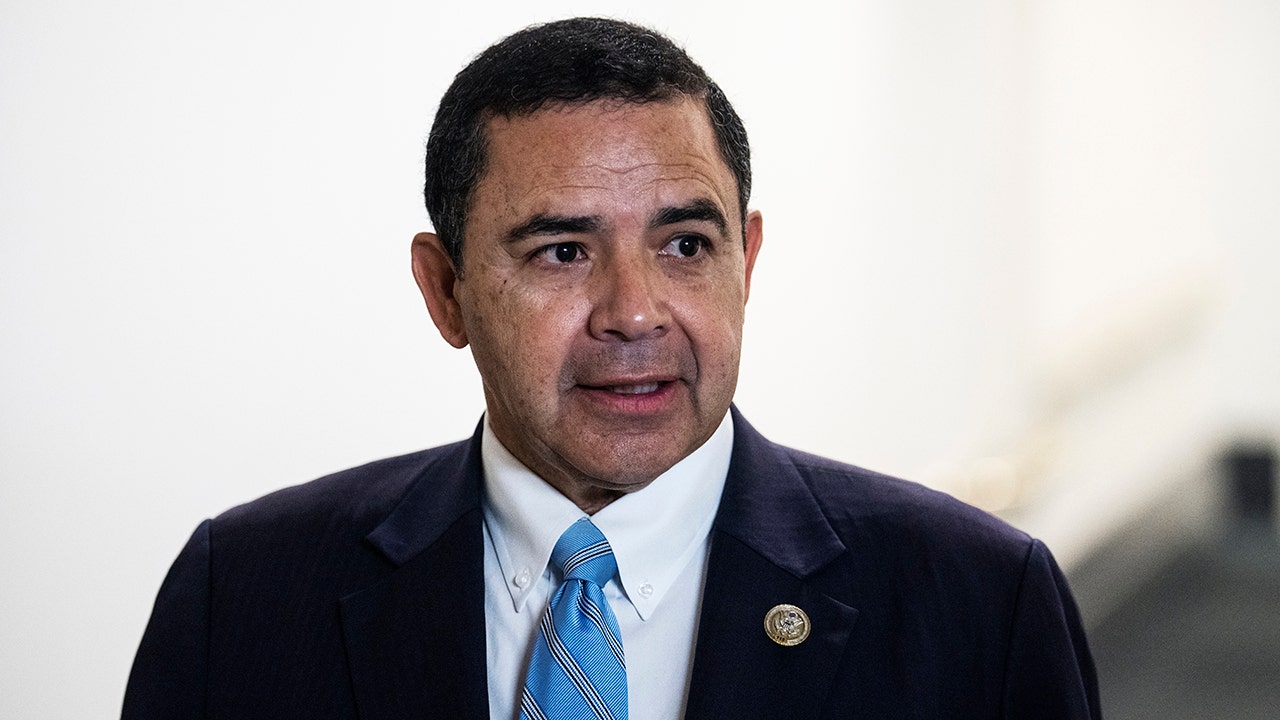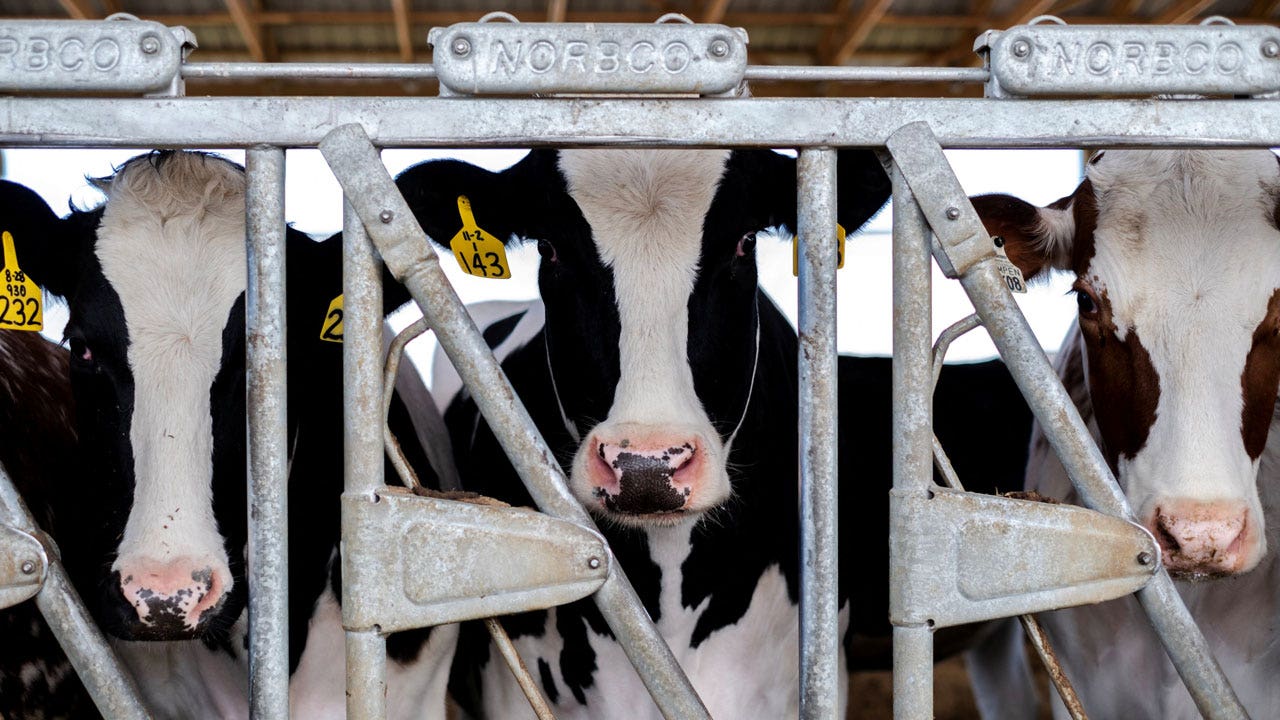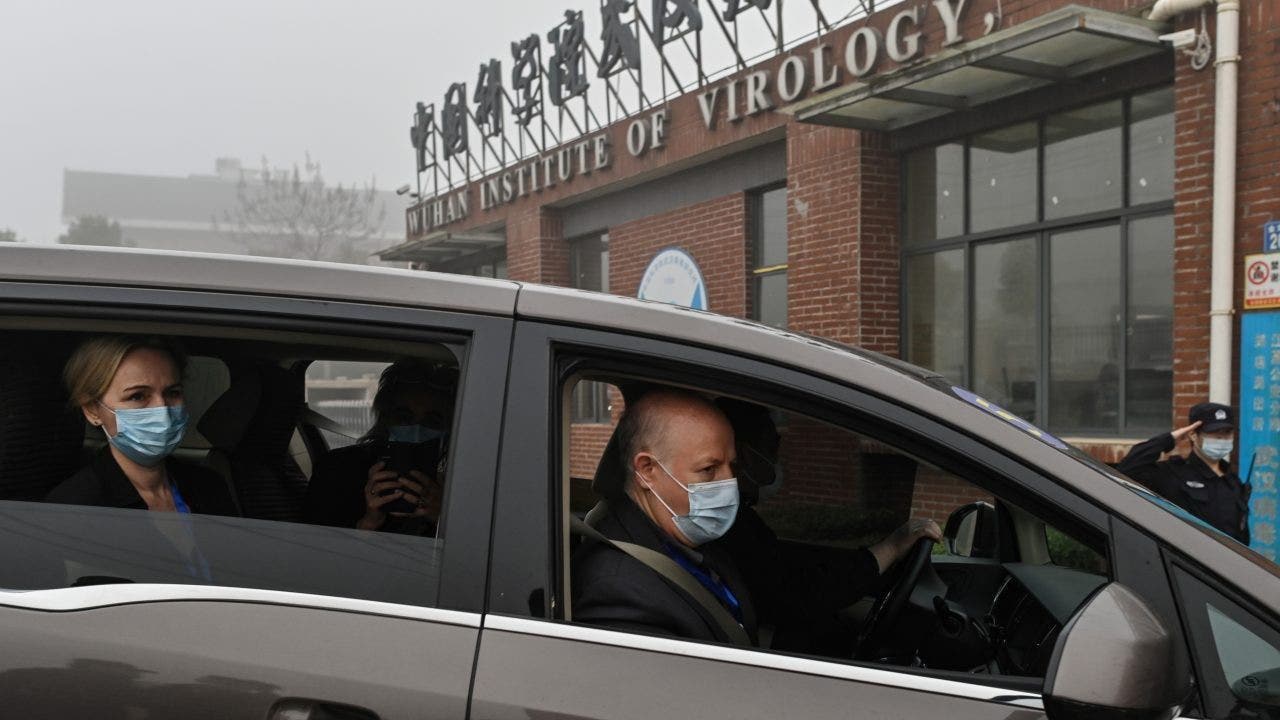World
Thousands of Indigenous people gather in Brazil to protest Lula's land grant decisions
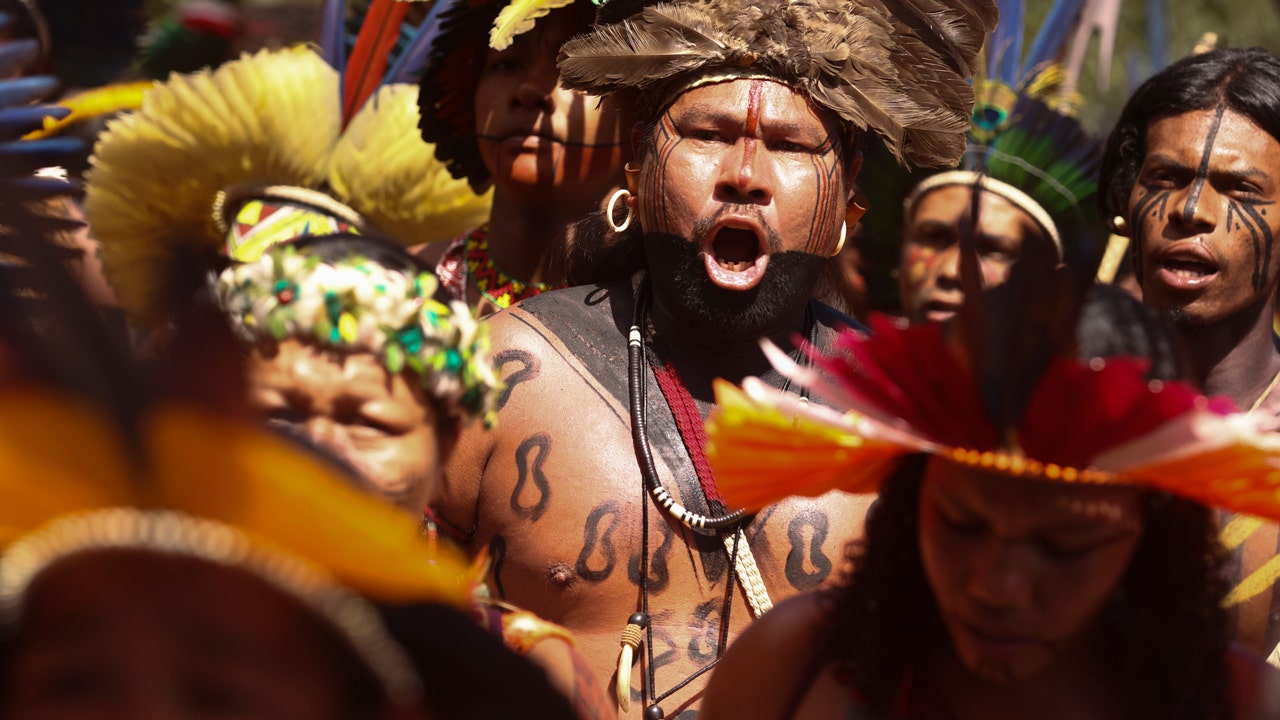
Thousands of Indigenous people began gathering in Brazil’s capital on Monday for what was expected to become a protest against President Luiz Inácio Lula da Silva’s unfulfilled promises to create reserves and expel illegal miners and land-grabbers from their territories.
Holding Lula’s government to account appeared to be the focus of this year’s 20th Free Land Camp, an annual weeklong encampment of Indigenous people in Brasilia.
CONSERVATIVE BRAZILIANS LAUD ELON MUSK AT RALLY IN SUPPORT OF BOLSONARO
Last week, Lula created two new reserves instead of the six his government had promised for this year. During the announcement, he acknowledged that “some of our friends” would be frustrated.
Lula said the delay was at the behest of state governors and that it was necessary to find new areas for about 800 non-Indigenous peoples who would eventually be displaced upon defining the new reserves.
Indigenous people dance during the 20th annual Free Land Indigenous Camp in Brasília, Brazil, Monday, April 22, 2024. The 7-day event aims to show the unity of Brazil’s Indigenous peoples in their fight for the demarcation of their lands and their rights. (AP Photo/Luis Nova)
“Enough of lawful genocide! Our rights cannot be negotiated, and no one can take Indigenous rights out of the Constitution,” read an open letter from Brazil’s Indigenous People Articulation, the country’s main Indigenous organization, published Monday. The letter was addressed to the legislative, judicial and executive branches of Brazil’s government.
At least 251 territories have pending claims for recognition before the federal government, according to non-profit Socio-Environmental Institute.
“We are very disappointed with this government. We know it has many enemies, and the Congress is one common enemy”, Alessandra Korap, an Indigenous leader of the Munduruku tribe, told The Associated Press. “But we didn’t expect it to demarcate only two lands this year.”
Lula took office in 2023 pledging to resume granting lands to Indigenous peoples, a stark contrast to his predecessor, Jair Bolsonaro, who kept his promise not to create a single centimeter of additional Indigenous land. However, Indigenous demands face mounting opposition from the powerful agribusiness sector, which has the support of hundreds of seats in Congress and several governors across the country.
Protest organizers said about 8,000 people have so far come to Brasilia this year. They’ve set up hundreds of tents on the main esplanade. Some endured a three-day long bus trip. Activities in the camp include traditional dances, the selling of handicrafts, debates and political demonstrations.
Many more protesters were expected to come throughout the week.

World
Colombia cuts diplomatic relations with Israel, but its military relies on Israeli technology
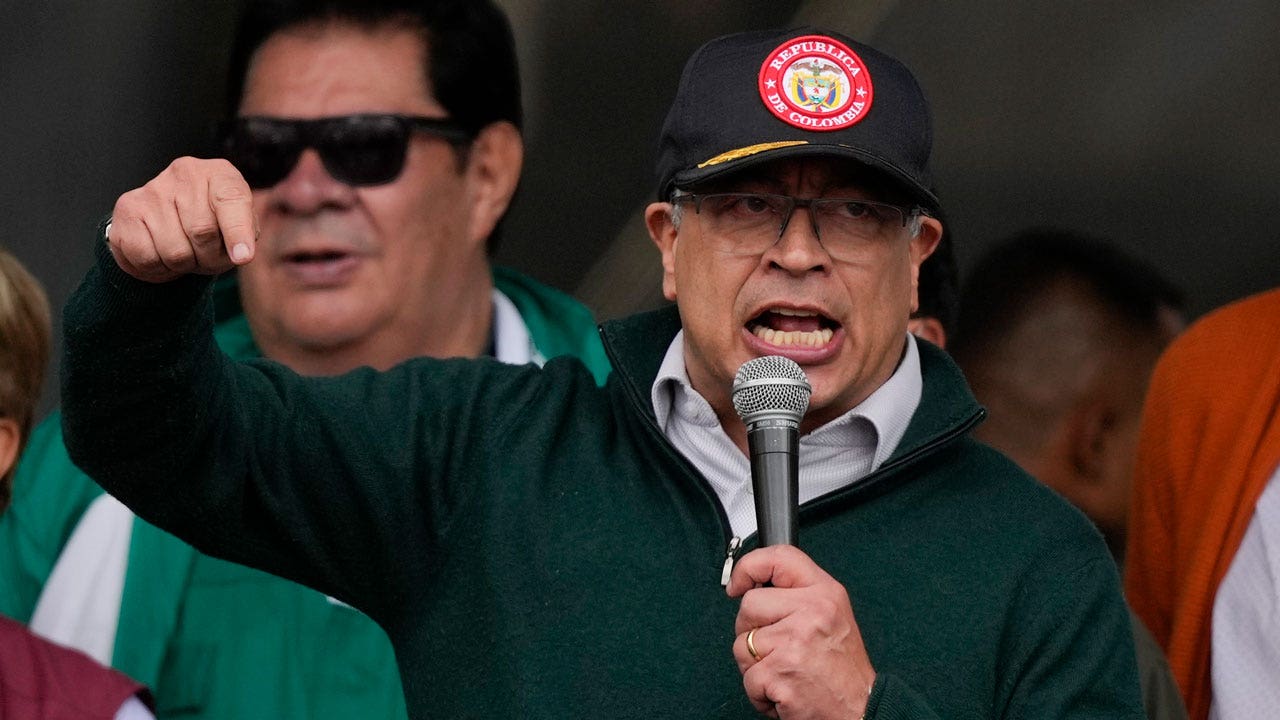
Colombia has become the latest Latin American country to announce that it will break diplomatic relations with Israel over its military campaign in Gaza, but the repercussions for the South American nation could be broader than for other countries because of longstanding bilateral agreements over security matters.
Colombian President Gustavo Petro on Wednesday described Israel’s actions in Gaza as “genocide,” and announced his government would end diplomatic relations with Israel effective Thursday. But he didn’t address how his decision could affect Colombia’s military, which uses Israeli-built warplanes and machine guns to fight drug cartels and rebel groups, and a free trade agreement between both countries that went into effect in 2020.
Also in the region, Bolivia and Belize have severed diplomatic relations with Israel over the Israel-Hamas war.
COLOMBIA’S PRESIDENT SAYS HUNDREDS OF THOUSANDS OF PIECES OF AMMUNITION HAVE GONE MISSING FROM MILITARY BASES
Here’s a look at Colombia’s close Israel ties and fallout:
WHY IS SECURITY COOPERATION BETWEEN COLOMBIA AND ISRAEL IMPORTANT?
Colombia and Israel have signed dozens of agreements on wide-ranging issues, including education and trade, since they established diplomatic relations in 1957. But nothing links them closer than military contracts.
Colombia’s fighter jets are all Israeli-built. The more than 20 Kfir Israeli-made fighter jets were used by its air force in numerous attacks on remote guerrilla camps that debilitated the Revolutionary Armed Forces of Colombia. The attacks helped push the rebel group into peace talks that resulted in its disarmament in 2016.
Colombian President Gustavo Petro speaks at the International Workers’ Day march in Bogota, Colombia, on May 1, 2024. Petro on Wednesday announced his government would end diplomatic relations with Israel. (AP Photo/Fernando Vergara)
But the fleet, purchased in the late 1980s, is aging and requires maintenance, which can only be carried out by an Israeli firm. Manufacturers in France, Sweden and the United States have approached Colombia’s government with replacement options, but the spending priorities of Petro’s administration are elsewhere.
Colombia’s military also uses Galil rifles, which were designed in Israel and for which Colombia acquired the rights to manufacture and sell. Israel also assists the South American country with its cybersecurity needs.
WILL PETRO’S ANNOUNCEMENT AFFECT COLOMBIA’S MILITARY-RELATED CONTRACTS WITH ISRAEL?
It remains unclear.
Colombia’s Foreign Ministry said Thursday in a statement that “all communications related to this announcement will be made through established official channels and will not be public.” The ministry didn’t immediately respond to a request for comment from The Associated Press, while the Israeli Embassy in Bogota declined to address the issue.
However, a day before Petro announced his decision, Colombian Defense Minister Iván Velásquez told lawmakers that no new contracts will be signed with Israel, though existing ones will be fulfilled, including those for maintenance for the Kfir fighters and one for missile systems.
Velásquez said the government has established a “transition” committee that would seek to “diversify” suppliers to avoid depending on Israel. He added that one of the possibilities under consideration is the development of a rifle by the Colombian military industry to replace the Galil.
Security cooperation has been at the center of tensions between the two countries. Israel said in October that it would halt security exports to Colombia after Petro refused to condemn Hamas’ Oct. 7 attack on southern Israel that triggered the war and compared Israel’s actions in Gaza to those of Nazi Germany. In February, Petro announced the suspension of arms purchases from Israel.
For retired Gen. Guillermo León, former commander of the Colombian air force, the country’s military capabilities will be affected if Petro’s administration breaks its contract obligations or even if it complies with them but refuses to sign new ones.
“At the end of the year, maintenance and spare parts run out, and from then on, the fleet would rapidly enter a condition where we would no longer have the means to sustain it,” he told the AP. “This year, three aircraft were withdrawn from service due to compliance with their useful life cycle.”
WHAT IS THE TRADE RELATIONSHIP BETWEEN THE TWO COUNTRIES?
A free trade agreement between Colombia and Israel went into effect in August 2020. Israel now buys 1% of Colombia’s total exports, which include coal, coffee and flowers.
According to Colombia’s Ministry of Commerce, exports to Israel last year totaled $499 million, which represents a drop of 53% from 2022.
Colombia’s imports from Israel include electrical equipment, plastics and fertilizers.
Neither government has explained whether the diplomatic feud will affect the trade agreement.
World
Meloni plans to rally Europe's centre-right in elections pledge
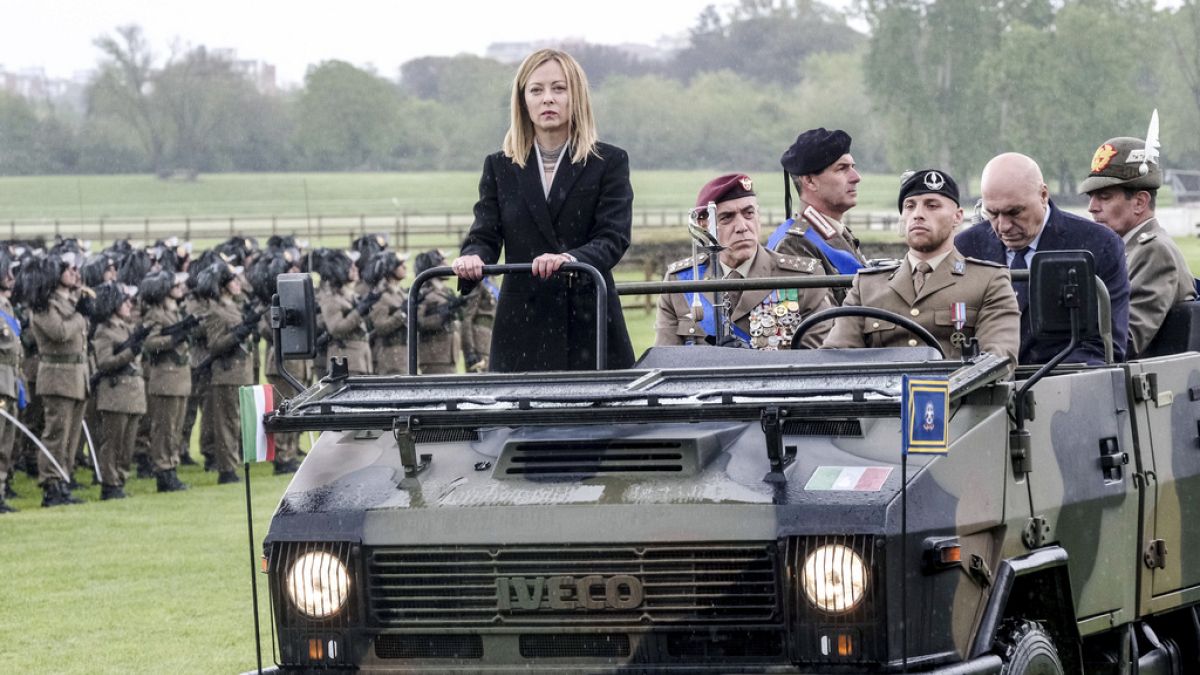
In the run-up to the European elections in June, Euronews takes a closer look at the Brothers of Italy party leader and the country’s prime minister’s speech in Pescara.
The Brothers of Italy’s conference in Pescara was more than a party gathering to launch Meloni’s electoral campaign.
The event marks a key moment in the run-up to the European elections in June, with the Italian prime minister’s address last Sunday providing crucial insight into her conservative leadership in Europe and her EU goals.
At the event, she announced that voters should use just her first name on their ballots. “Call me Giorgia,” she said.
The move is legal, and while many, including her rivals, have criticised her decision, it aligns with her image as a leader with working-class roots who took her first step into politics in Rome’s Garbatella district.
In both her role as Italy’s PM and president of the ECR group, Meloni outlined her vision for Europe.
Notably, she spoke of Brothers of Italy’s increased support over the years since the last European elections in 2019, while commenting on her ambitions to extend what her party has achieved in Italy to the rest of Europe.
“We want to do in Europe what we did in Italy … create a majority that brings together the centre-right forces and send the left into opposition,” Meloni said in Pescara in what has since been highlighted as a key statement.
Alliances based on issues, not ideals
A closer look at Meloni’s speech can help better understand what she has in mind. As ECR Co-Chairman Nicola Procaccini told Euronews, “Meloni refers to a spectrum of positions which sees both the ECR and the EPP as the two main axes when she talks about the creation of a majority that brings together centre-right forces.”
“Then, some delegations from ID in the right-wing camp,” adds Procaccini, “along with others from Renew Europe … will make up the total number that is needed to reach the majority to vote in favour of some measures.”
According to Procaccini, it is crucial to understand that the idea of “majority” within the new 720 seats-strong European Parliament is not fixed and that finding common ground with other political forces remains a possibility.
“Majorities or minorities form themselves based on the single vote. I do believe that the balance within the next European Parliament will shift to the right,” Procaccini said, adding that the EPP and a large part of Renew Europe are already voting alongside ECR, PiS or Viktor Orban’s Fidesz.
“It’s already happening today,” Procaccini continued, “not because there’s a deal in place, but based on the issues we are voting on.”
And as for sending the left into opposition, “it’s about giving the EPP the possibility to break the bond it has built with the socialists and the greens,” Brothers of Italy MP Sara Kelany told Euronews.
World
Norwegian Islamist wanted over deadly shooting at LGBTQ+ festival is being sent back from Pakistan

COPENHAGEN, Denmark (AP) — A radical Norwegian Islamist who is suspected of complicity in the deadly shooting at an LGBTQ+ festival in Oslo two years ago has been expelled from Pakistan and is on his way to Norway, the Scandinavian country’s government said Friday.
Two people were killed and nine seriously wounded in the shooting at three locations, chiefly outside the London Pub, a popular gay bar in Oslo’s nightlife district, on June 25, 2022.
Arfan Bhatti, who is to land in Oslo later Friday, allegedly posted statements online about killing gay people, Norwgian media have said.
Bhatti knew Zaniar Matapour, the main suspect in the attack that the Norwegian Police Security Service has called an “Islamist terror act.” Matapour has since March been on trial in Oslo for the shooting, accused of terrorism.
A Norwegian citizen born in Oslo to Pakistan immigrants, Bhatti who has a past in criminal gangs, was a leading figure in radical Islamic circles in Norway for years, chiefly known as the leading figure in an Islamic State-affiliated group in the country.
The 46-year-old was not in Norway in 2022 but likely in Pakistan, Justice Minister Emilie Enger Mehl said. His role in the 2022 shooting was unclear and Norwegian police have said that with Bhatti’s return to Norway, they “want to continue with the extensive investigations to shed light on what involvement Bhatti may have had in the attack.”
“No matter where in the world someone is, they should know that the Norwegian authorities are doing everything we can to bring them to Norway,” Enger Mehl told a press conference.
Norwegian police said that although there is no extradition agreement with Pakistan, Pakistani authorities have made it possible “to complete the investigation into the terrorist case.”
Upon arrival in Norway, Bhatti will be detained and face a custody hearing during the weekend, police said.
Bhatti could be called upon testifying in the trial at the Oslo District Court against Matapour. Bhatti’s lawyer John Christian Elden said his client has nothing to do with the 2022 shooting.
”Whether he is guilty is up to the legal system to decide,” Enger Mehl said.
Matapour, a Norwegian citizen originally from Iran, allegedly fired 10 rounds with a machine gun and eight shots with a handgun into a crowd before being detained by bystanders. Following the attack, a Pride parade was canceled, with police saying they couldn’t guarantee security.
Matapour who had sworn allegiance to the Islamic State group, has refused to speak to investigators. If found guilty, he faces 30 years in prison.
-

 News1 week ago
News1 week agoLarry Webb’s deathbed confession solves 2000 cold case murder of Susan and Natasha Carter, 10, whose remains were found hours after he died
-

 World1 week ago
World1 week agoHaiti Prime Minister Ariel Henry resigns, transitional council takes power
-

 News1 week ago
News1 week agoFirst cargo ship passes through new channel since Baltimore bridge collapse
-

 World1 week ago
World1 week agoUS secretly sent long-range ATACMS weapons to Ukraine
-

 World1 week ago
World1 week agoSpanish PM Pedro Sanchez suspends public duties to 'reflect'
-

 News1 week ago
News1 week agoAmerican Airlines passenger alleges discrimination over use of first-class restroom
-

 Movie Reviews1 week ago
Movie Reviews1 week agoHumane (2024) – Movie Review
-

 Education1 week ago
Education1 week agoVideo: Johnson Condemns Pro-Palestinian Protests at Columbia University

/cdn.vox-cdn.com/uploads/chorus_asset/file/23382326/VRG_Illo_STK022_K_Radtke_Musk_Tesla.jpg)
